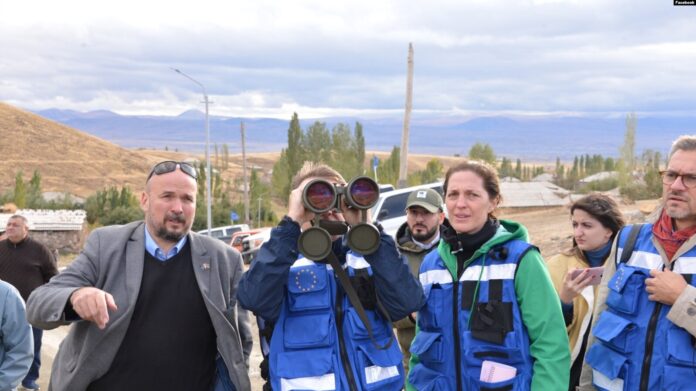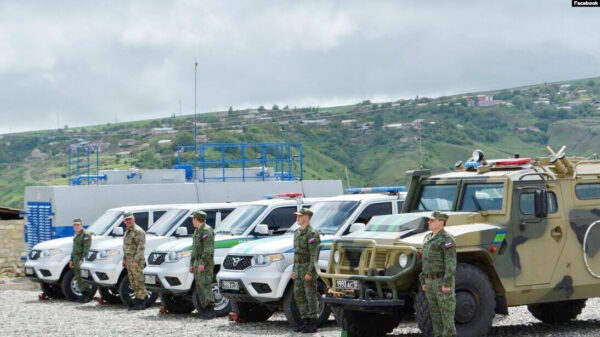By Nane Sahakian
BRUSSELS (RFE/RL) — The European Union announced on Monday, February 20, the launch of a new and more long-term monitoring mission to Armenia’s volatile border with Azerbaijan which is strongly opposed by Russia.
It said that the 100 or so monitors sent by various EU member states will strive to “contribute to stability in the border areas of Armenia, build confidence and human security in conflict affected areas, and ensure an environment conducive to the normalization efforts between Armenia and Azerbaijan.”
“The total — exclusively civilian — staff of the EUMA [EU Mission in Armenia] will be approximately 100, including around 50 unarmed observers,” the EU added in a statement.
It did not specify whether the other members of the two-year mission will carry weapons. Recent news reports said that the EU monitors will include officers of the German police and the French gendarmerie.
The EU already deployed 40 civilian monitors to Armenian border areas in late October on a two-month mission agreed during an Armenian-Azerbaijani summit in Prague. The agreement followed the September border clashes between Armenian and Azerbaijani forces which left more than 300 soldiers dead.











